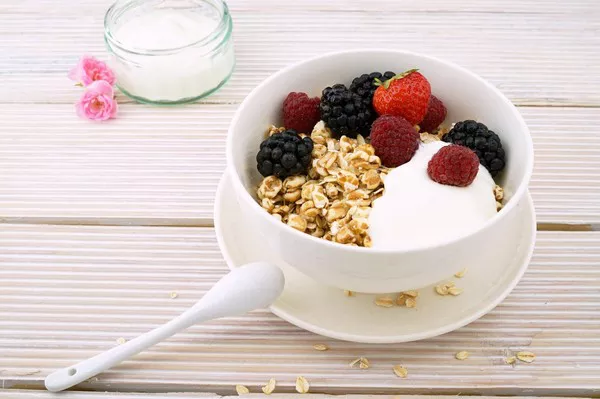Protein supplements have become a ubiquitous presence in the fitness and wellness industry, offering a convenient and efficient way to meet daily protein requirements. As the market is flooded with a myriad of options, individuals often find themselves pondering the question: What is the best protein supplement? This article aims to dissect the landscape of protein supplements, exploring different types, their benefits, and factors to consider when determining the best fit for individual needs and goals.
Understanding Protein Basics: The Building Blocks of Life
Before delving into the world of protein supplements, it’s essential to understand the fundamental role of protein in the body. Proteins are macromolecules made up of amino acids, often referred to as the building blocks of life. They play a crucial role in various physiological processes, including muscle repair, immune function, enzyme production, and hormone regulation. While obtaining protein from whole food sources is ideal, supplements can offer a convenient solution, especially for those with increased protein needs or individuals seeking to optimize their fitness and nutritional goals.
Types of Protein Supplements: Unveiling the Options
The diversity of protein supplements can be overwhelming, with each type catering to different preferences, dietary restrictions, and fitness objectives. Whey protein, derived from milk, is one of the most popular and rapidly absorbed forms. Casein, another milk-derived protein, is digested more slowly, providing a sustained release of amino acids. Plant-based options, such as pea protein, soy protein, and hemp protein, cater to vegetarian and vegan preferences. Egg white protein offers a complete amino acid profile, while collagen protein targets joint and skin health. The best protein supplement depends on individual preferences, dietary requirements, and fitness goals.
Whey Protein: The Gold Standard
Whey protein stands out as the gold standard in the realm of protein supplements, renowned for its high-quality amino acid profile and rapid absorption. It contains all essential amino acids, making it a complete protein source. Whey is rich in leucine, an amino acid crucial for muscle protein synthesis. Its rapid digestion and absorption make whey an excellent choice for post-workout recovery, providing the body with the necessary building blocks for muscle repair and growth. Whey protein isolate, with a higher protein content and lower lactose and fat, is often preferred by those with lactose sensitivities.
Casein Protein: Slow and Sustained Release
While whey takes the spotlight for fast absorption, casein protein offers a contrasting benefit with its slow and sustained release of amino acids. Derived from milk, casein forms a gel-like substance in the stomach, leading to a gradual digestion process. This slow release can be advantageous, especially during periods of fasting or as a nighttime protein source. Casein is often marketed as an ideal protein for individuals looking to support muscle maintenance over extended periods, such as between meals or before bedtime.
Plant-Based Proteins: Meeting Diverse Dietary Needs
The surge in popularity of plant-based diets has driven the demand for plant-based protein supplements. Pea protein, derived from yellow peas, has gained recognition for its rich amino acid profile and easy digestibility. Soy protein, originating from soybeans, is a complete protein source and suitable for vegetarians. Hemp protein, derived from hemp seeds, offers not only protein but also essential fatty acids. Plant-based proteins cater to individuals with dietary restrictions, allergies, or ethical considerations, providing a viable alternative to animal-based options.
Egg White Protein: A Complete Protein Source
Egg white protein is derived from the whites of eggs and is considered a complete protein source, meaning it contains all essential amino acids. This type of protein is fat-free and low in carbohydrates, making it a lean option for individuals focused on specific macronutrient ratios. Egg white protein is suitable for those with dairy allergies or sensitivities and provides a versatile option for various dietary preferences.
Collagen Protein: Beyond Muscle Support
Collagen protein has gained popularity for its unique benefits beyond muscle support. Collagen is the most abundant protein in the body and is a crucial component of connective tissues, skin, and joints. Collagen supplements are often marketed for their potential to promote joint health, improve skin elasticity, and support hair and nail growth. While collagen is not a complete protein in terms of its amino acid profile, it offers specific benefits that may appeal to individuals with joint concerns or those seeking to enhance skin health.
Considering Dietary Goals: Matching Protein to Objectives
Determining the best protein supplement involves aligning the choice with individual dietary goals. For those aiming to build muscle mass and support intense workouts, whey protein or a whey protein blend can be an excellent choice due to its rapid absorption and high leucine content. Individuals prioritizing sustained protein release throughout the day may lean towards casein protein or a blend of proteins with varying digestion rates. Plant-based proteins cater to vegetarians, vegans, or those seeking a more sustainable and ethical protein source.
Quality and Purity: Seeking Third-Party Testing
The quality and purity of a protein supplement are paramount considerations when identifying the best option. Third-party testing by independent organizations, such as NSF Certified for Sport or Informed-Choice, ensures that the product meets stringent quality and safety standards. These certifications provide confidence in the accuracy of ingredient labeling, absence of contaminants, and adherence to good manufacturing practices. Checking for third-party testing adds a layer of transparency and assurance regarding the quality of the chosen protein supplement.
Allergen Considerations: Catering to Sensitivities
Individuals with allergies or sensitivities must carefully examine the ingredients of protein supplements. Whey and casein, derived from milk, may pose challenges for those with lactose intolerance or dairy allergies. Plant-based proteins, such as pea or hemp protein, offer allergen-friendly alternatives. Egg white protein can be a suitable option for those avoiding dairy. It’s crucial to read product labels thoroughly and choose protein supplements that align with specific allergen considerations to prevent adverse reactions.
Flavor and Texture: Enhancing Palatability
The palatability of a protein supplement can significantly impact adherence to a supplement regimen. Many protein supplements come in a variety of flavors, ranging from classic chocolate and vanilla to more adventurous options like salted caramel or cookies and cream. The texture of the protein powder, especially when mixed with water, milk, or alternative beverages, also contributes to the overall sensory experience. Exploring different flavors and brands allows individuals to find a protein supplement that not only meets their nutritional needs but also aligns with their taste preferences.
Added Ingredients: Functional Enhancements
Some protein supplements come fortified with additional ingredients to enhance their functional benefits. Creatine, BCAAs (branched-chain amino acids), and digestive enzymes are common additives in certain protein formulations. Creatine supports muscle strength and power, BCAAs contribute to muscle recovery, and digestive enzymes aid in the breakdown and absorption of protein. While these additives can offer specific advantages, individuals should assess their personal needs and goals to determine whether such enhancements align with their overall supplement strategy.
Dosing and Timing: Tailoring to Individual Routines
The optimal dosing and timing of protein supplementation depend on individual routines, preferences, and fitness objectives. Many individuals choose to consume a protein shake post-workout to support muscle recovery and protein synthesis. Others may use protein supplements as meal replacements or snacks throughout the day to meet daily protein targets. The consistency of protein intake, whether through whole foods or supplements, plays a crucial role in supporting overall protein needs. Experimenting with different dosages and timings allows individuals to tailor their protein supplementation to align with their lifestyle and goals.
Cost Considerations: Balancing Budget and Quality
While the cost of protein supplements is a practical consideration, it’s essential to balance budget constraints with the quality of the product. Cheaper options may compromise on ingredient quality, taste, or purity. Investing in a reputable and high-quality protein supplement ensures that the product delivers the intended nutritional benefits without compromising on safety or efficacy. Considering cost per serving rather than the total cost can provide a more accurate assessment of the value offered by a protein supplement.
Individual Responses: Personalized Experiences with Protein Supplements
Individual responses to protein supplements can vary based on factors such as metabolism, digestive tolerance, and overall health. Some individuals may find that certain types of protein, such as whey or plant-based options, are better tolerated and result in fewer digestive issues. Experimenting with different protein sources and formulations allows individuals to identify the products that best suit their unique physiology and preferences. Monitoring how the body responds to different protein supplements can guide the selection of the most suitable option for long-term use.
Consulting Healthcare Professionals: Personalized Guidance
Before incorporating any new supplement into a routine, including protein supplements, individuals should consult with healthcare professionals or registered dietitians. These professionals can provide personalized guidance based on individual health status, dietary needs, and fitness goals. They can also address specific concerns, such as allergies, intolerances, or underlying health conditions, ensuring that the chosen protein supplement aligns with overall health and wellness objectives.
Conclusion
In conclusion, determining the best protein supplement involves a thoughtful consideration of individual needs, preferences, and goals. The diverse array of options, from whey and casein to plant-based and collagen proteins, allows individuals to tailor their choices to align with dietary restrictions, ethical considerations, and fitness aspirations. As a fundamental component of the body’s nutrition, protein supplements offer a convenient and efficient way to support muscle health, recovery, and overall well-being. By understanding the nuances of different protein types, considering factors like quality, allergens, and additives, and seeking personalized guidance when needed, individuals can navigate the protein supplement landscape with confidence, optimizing their nutritional strategy to meet their unique needs.
[inline_related_posts title=”You Might Be Interested In” title_align=”left” style=”list” number=”6″ align=”none” ids=”3776,3773,3744″ by=”categories” orderby=”rand” order=”DESC” hide_thumb=”no” thumb_right=”no” views=”no” date=”yes” grid_columns=”2″ post_type=”” tax=””]

































